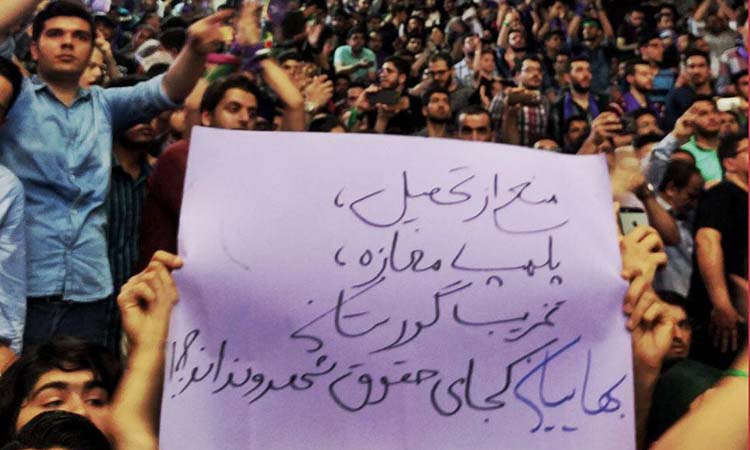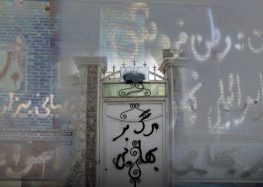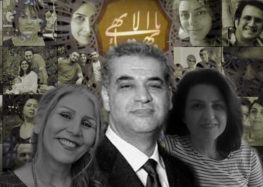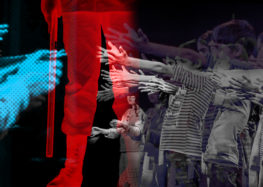Baha’i Persecution Worsens Under Rouhani Government

“Banned from university, businesses sealed, cemeteries desecrated… What rights do Baha’is have as citizens?”
The persecution of the Baha’i religious minority in Iran has grown worse under President Hassan Rouhani, the spokesperson for the community at the United Nations in Geneva told the Center for Human Rights in Iran (CHRI).
“Unfortunately, the situation has not changed in the past four years and if we look at the number of Baha’i citizens arrested, it has actually become worse,” Simin Fahandej told CHRI in a recent interview.
“There are currently about 90 Baha’is in prison, Baha’i students are still denied university education, and hundreds of their businesses have been shut down, not to mention the abuse the community endures on a daily basis,” she said.
“Before he was elected in 2013, Mr. Rouhani gave a lot of hopeful slogans about equality and justice for all Iranians and he won,” added Fahandej. “But in the past four years, the rights of Baha’i citizens have been violated in every way.”
Continued the spokesman: “Businesses belonging to Baha’is are being sealed on a weekly and monthly basis with and without court orders, forcing owners to earn a living for their families by selling goods on the street or in front of their stores. It is a great injustice when the government tries to force destitution and poverty on a large community. What the government should be doing is facilitating the growth and progress of all citizens regardless of religion or race.”
Since early April 2017, in the run-up to the presidential and local councils elections on May 19, 13 Baha’is have been arrested by the Intelligence Ministry in the cities of Isfahan, Shiraz, Bandar Abbas and Qeshm Island.
Iran’s Constitution does not recognize the Baha’i faith as an official religion. Although Article 23 states that “no one may be molested or taken to task simply for holding a certain belief,” followers of the faith are denied many basic rights as one of the most severely persecuted religious minorities in the country.
May 15 marked the ninth anniversary of the imprisonment of seven leaders of Iran’s Baha’i community — Jamaloddin Khanjani, Behrouz Tavakkoli, Saeid Rezaie, Fariba Kamalabadi, Vahid Tizfahm, Afif Naeimi, and Mahvash Sabet — for alleged “assembly and collusion against national security,” “propaganda against the state” and “espionage.”
The “Baha’i 7” were each sentenced to 20 years in prison before their sentences were reduced to 10 years imprisonment upon appeal.
CHRI has learned that during Rouhani’s May 15 presidential campaign rally in Sari, northern Iran, some members of the crowd displayed signs calling for the release of the imprisoned Baha’i leaders.
“Nine years went by. Free Iran’s Yaran,” read one sign, referring to the disbanded group of the imprisoned seven. “Banned from university, businesses sealed, cemeteries desecrated… What rights do Baha’is have as citizens?” said another sign.
According to Article 25 of the Charter on Citizens’ Rights, which Rouhani signed in December 2016, “Citizens have freedom of thought. Inquisition is prohibited, and no one can be persecuted merely for his or her beliefs.”





